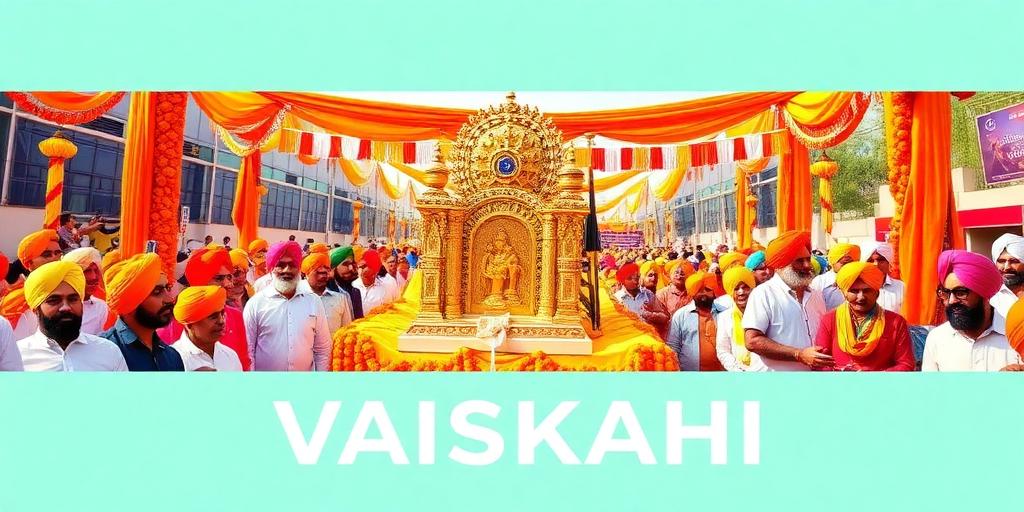Vaisakhi, also known as Baisakhi, is a significant festival in Sikhism and Hinduism that marks the beginning of the spring harvest season and the Sikh New Year. Celebrated annually on April 13th or 14th, it holds deep historical and religious importance, particularly for Sikhs.
The Formation of the Khalsa: The most profound significance of Vaisakhi for Sikhs is the commemoration of the day in 1699 when Guru Gobind Singh, the tenth Sikh Guru, established the Khalsa Panth, the collective body of initiated Sikhs. This pivotal event took place at Anandpur Sahib, where Guru Gobind Singh called upon Sikhs to sacrifice themselves for their faith. Five Sikhs, known as the Panj Pyare or the "Five Beloved Ones," answered his call and were initiated into the Khalsa, a brotherhood and sisterhood of saint-soldiers committed to upholding justice, equality, and religious freedom.
The Khalsa initiation transformed the Sikh identity and instilled a sense of courage, discipline, and service. The Khalsa are distinguished by their adherence to the Five Ks: Kesh (uncut hair), Kangha (a wooden comb), Kara (an iron or steel bracelet), Kirpan (a dagger), and Kachera (short breeches). These symbols represent a commitment to Sikh values and principles.
Celebrations and Traditions: Vaisakhi is celebrated with immense enthusiasm and devotion across the globe. Sikhs gather at gurdwaras (Sikh temples) for special prayers, kirtan (devotional singing), and langar (community kitchen). Processions, known as Nagar Kirtans, are organized, where the Guru Granth Sahib, the Sikh holy scripture, is carried through the streets accompanied by music, singing, and the display of Sikh martial arts.
Harvest Festival: Vaisakhi also coincides with the harvest season in Punjab, India, where it is celebrated as a thanksgiving festival for a bountiful harvest. Farmers express their gratitude for the blessings of nature and pray for continued prosperity. Traditional folk dances, such as Bhangra and Gidda, are performed, and fairs and cultural events are organized, showcasing the vibrant Punjabi culture.
Message of Unity and Equality: Vaisakhi embodies the Sikh values of unity, equality, and selfless service. The establishment of the Khalsa emphasized the importance of eradicating social distinctions and promoting equality among all people, regardless of caste, creed, or gender. The spirit of Vaisakhi encourages Sikhs to actively engage in community service and to stand up against injustice and oppression.
In conclusion, Vaisakhi is a time for Sikhs to reflect on their heritage, reaffirm their commitment to Sikh values, and celebrate the spirit of unity, equality, and service. It is a festival that holds deep historical and religious significance, reminding Sikhs of the sacrifices made by their ancestors and inspiring them to live a life of purpose and devotion.









